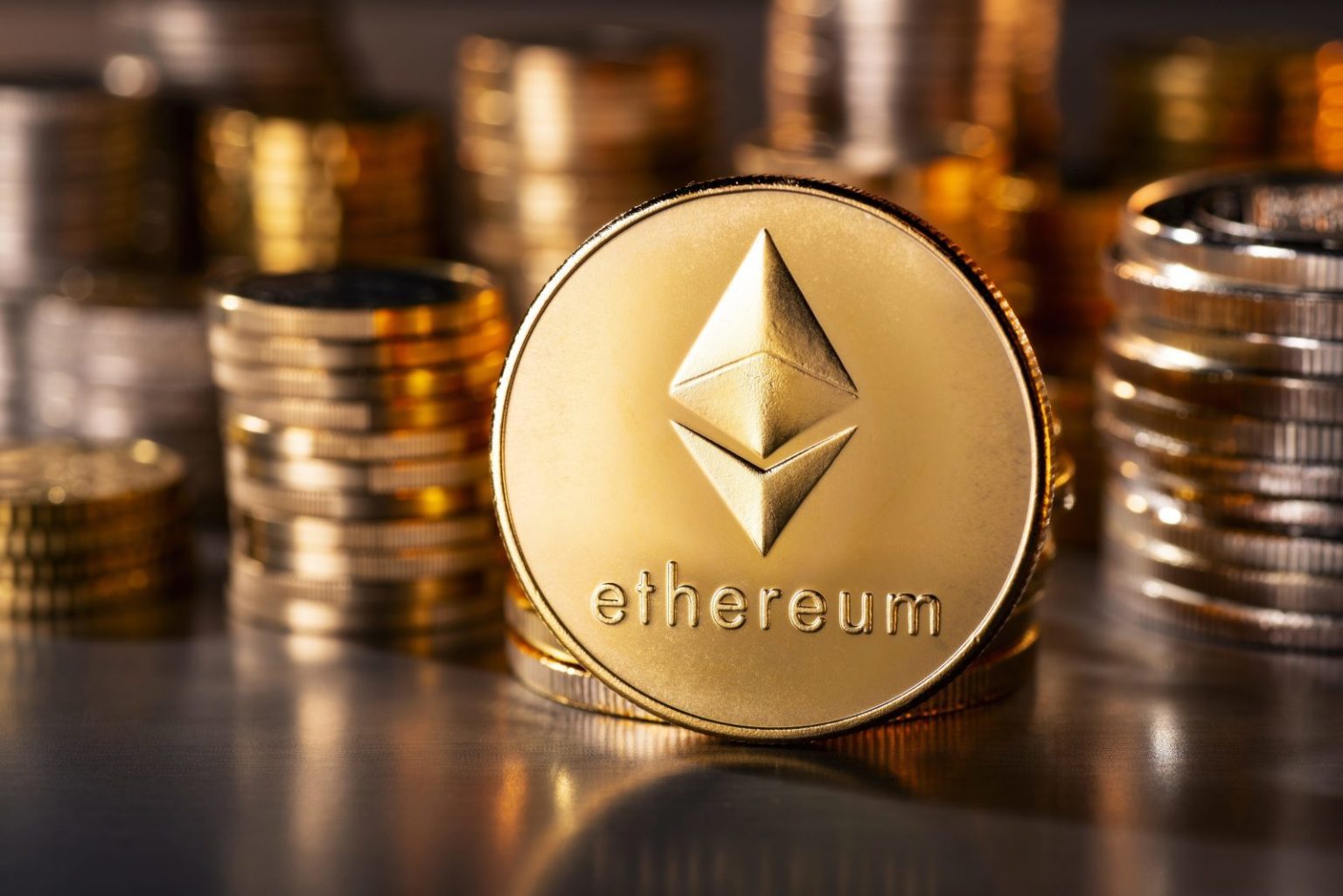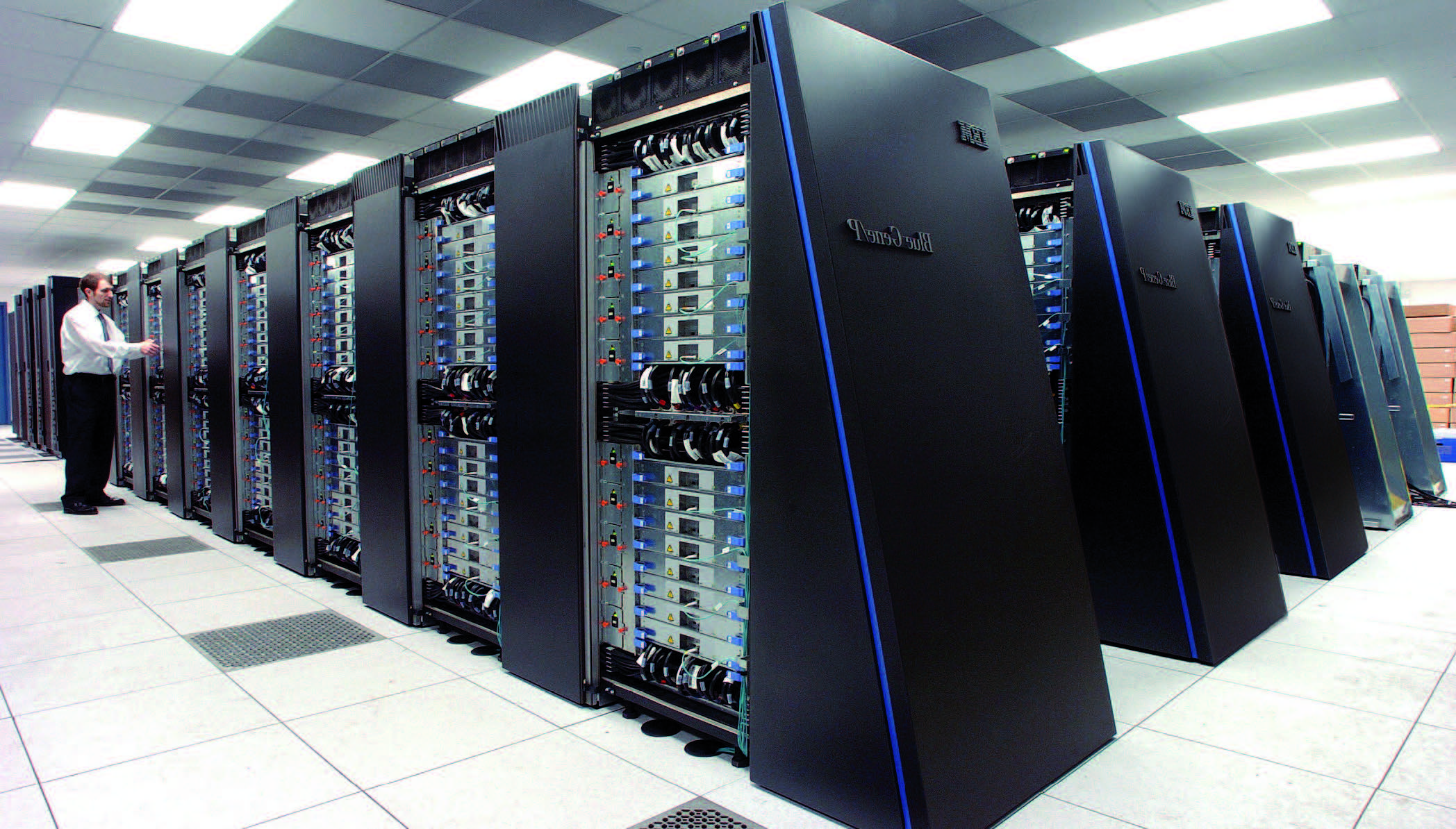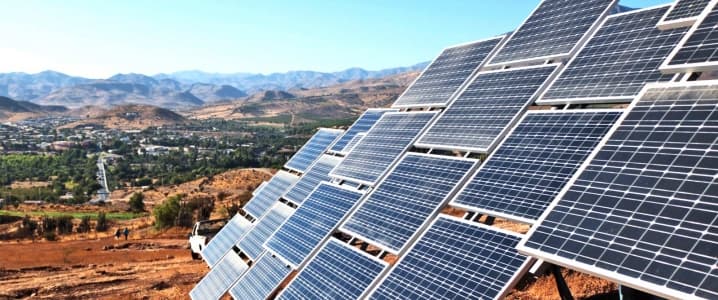Cryptocurrencies, democracy, technology
05-02-2021
PropertyInvesting.net team 
Quiet Revolution: There is a quiet revolution happening. Every person on this planet needs to think about it. It's cryptocurrencies, Bitcoin and the exponential adoption of cryptocurrencies we expect in the next 5 years that will change the face of banking, transactions, storing wealth and retaining wealth against the threats of fiat hyperinflation – and driving massive change in business practices. Crypto experts refer to this revolution as “the internet of money” and Bitcoin specifically as “digital gold”.
Bubble or Not? If you are interested in Bitcoin and Cryptocurrencies - consider why you are doing this. Are you "getting into it" to:
1) speculate - make serious money or retain your wealth (and making sure you are not left behind);
2) out of interest for the technology and its global applications; and/or
3) for the socio-economic aspects - like democracy, control of your finances etc.
Get Involved in This Technology: We would encourage you to get involved initially more for 2 and 3 - rather than just as a speculative money-making exercise. It's worth stressing that all prices can go up and down, and Bitcoin and other Cryptocurrency prices form bubbles that eventually deflate or go burst. Historically Bitcoin has risen say 20 fold only to then crash to 20% of it’s value from the peak. It’s quite likely Bitcoin prices will drop to say 30% of its value in the next crash, but we are pretty sure it will rise back like a phoenix over the longer term and go to new heights as the weaker hands sell out. Of course bubbles also develop in almost all markets – like the property market, S&P500 and other assets - all assets develop bubbles. Bitcoin and the Alt Coins though tend to have higher volatility - they rise faster but can also crash just as fast or even faster. But the interesting and robust aspect of Bitcoin is that it has had 3-4 year bubble-burst price cycles - rather like the oil price - but it always comes back again. This tells us almost for certain that Bitcoin and Cryptocurrencies will be around in the future - rather like the Internet. Some experts actually describe Cryptocurrencies as "the internet of money". We have had the internet for social media, business, databases etc since the 199 0s - and now Cryptocurrencies - using the internet - are the "Internet of Money". Each coin is like a software company that operates on the Internet of Money. When this latest bubble will burst is anyone's guess - it could burst today or it could deflate in say 2-3 years time, no-one can accurately predict this. Some experts predict end Sept 2021 for Bitcoin with Alt Coins topping out a month later based on previous cycles. Hence it's best to be careful when investing in Bitcoin and Cryptocurrencies - it would be foolish to mortgage the house to invest in Bitcoin for instance! Its best to only invest money that you think you could afford to lose all of it - at the extreme - and not lose any sleep. Rather like the dot-com bust. But after the next deflation (or crash) there will be another big run up - though it could be years away.
0s - and now Cryptocurrencies - using the internet - are the "Internet of Money". Each coin is like a software company that operates on the Internet of Money. When this latest bubble will burst is anyone's guess - it could burst today or it could deflate in say 2-3 years time, no-one can accurately predict this. Some experts predict end Sept 2021 for Bitcoin with Alt Coins topping out a month later based on previous cycles. Hence it's best to be careful when investing in Bitcoin and Cryptocurrencies - it would be foolish to mortgage the house to invest in Bitcoin for instance! Its best to only invest money that you think you could afford to lose all of it - at the extreme - and not lose any sleep. Rather like the dot-com bust. But after the next deflation (or crash) there will be another big run up - though it could be years away.
Bitcoin Scarcity: One of the key reasons why so many people think that Bitcoin price will continue to rise is because of its scarcity. Eventually there will only ever be 21 million coins, currently there are 18.5 million in existence. They are mined in 2021 at a rate of around 1.8% increase a year. However, evry 4 years there is a halving cycle – and this “inflation” is set to decline in future years as supply tightens. Most Bitcoin investors tend to hang on to their coins – after all most bought them because they wanted to exit fiat – so why would they sell them. These people are called “hodlers”. Th ones with huge bitcoin stocks are called “whales”. Compare this with fiat currency – for instance dollars – that increased (M2) 35% 2020 and is set for 15% increase in 2021 and 15% increase in 2022. Compare it with gold that increase by around 3% a years through mining. Even oil production and oil reserves have been increasing by around about 3% a year for the last 40 years. Gas has been increasing by around about 5% a year – as have gas reserves. The bottom lines is – Bitcoin is one of the “scarcest” things on the planet – its never been hacked, supply cant be increases above currently levels that will decline over time and we see demand skyrocketing. Hence the price long term should keep rising, as long as – like the internet – it is not banned or outlawed – which we believe is very unlikely. Central Banks in different countries are studying whether to go ahead with their own digital currencies – though they are 12 years behind Bitcoin and their adoption would only work if: 1) they were able to get the best minds to work on these projects and implement successfully (we consider this unlikely); 2) their was good uptake within the market – the risk of a humiliating failure would be on people’s minds; and/or 3) they did this in tandem with trying to bring draconian legislation in – to either partially try and ban Bitcoin or regulate it to death – since it may be deemed to be in direct competition with the new national cryptocurrency. Overall we see reglations coming in but think it unlikely a national cryptocurrency could upserp Bitcoin’s global dominance as a reserve currency of the crypto world.
Democracy Bitcoin and Blockchain was invented in 2008, launched in 2009 and has now been around for 12 years. It as launched via email and a “white paper” into the internet world as an “open source” software. It is incredibly robust demonstrated by the fact it has never been hacked, is centralised though not controlled by any individual or entity, has not changed coding over the last 12 years and is considered a robust “store of value”. What that value might actually be depends of course on supply and demand – the market – and the price started out at around $10 per coin and since risen to £57000/coin by 1 May 2021. Past performance is not assurance to future performance, so no-one really knows that Bitcoin might be worth tomorrow, in 5 or 10 years time. So sceptic about Bitcoin’s security should consider how many It system they know of that have not been hacked, and also how many banks that have not lost money – or even taken half your saving as either a “haircut” like they did in Greece and Cyprus – or inflating M2 money supply to take it indirectly every year from your bank savings account that might deliver 0.5% interest rate when money supply is increasing by 15-30% year!
now been around for 12 years. It as launched via email and a “white paper” into the internet world as an “open source” software. It is incredibly robust demonstrated by the fact it has never been hacked, is centralised though not controlled by any individual or entity, has not changed coding over the last 12 years and is considered a robust “store of value”. What that value might actually be depends of course on supply and demand – the market – and the price started out at around $10 per coin and since risen to £57000/coin by 1 May 2021. Past performance is not assurance to future performance, so no-one really knows that Bitcoin might be worth tomorrow, in 5 or 10 years time. So sceptic about Bitcoin’s security should consider how many It system they know of that have not been hacked, and also how many banks that have not lost money – or even taken half your saving as either a “haircut” like they did in Greece and Cyprus – or inflating M2 money supply to take it indirectly every year from your bank savings account that might deliver 0.5% interest rate when money supply is increasing by 15-30% year!
Massive Money Supply Increase: Just to remind everyone the extent of the currency printing happening, you can see for yourself how M1 money supply jumped around 30% in a few months recently. Its gigantic. We expect the growth to continue each years henceforth by at least 15%. This means your dollar (and the same is the case for Sterling) will decline in real purchasing power or value by around 50% of three years - that's scary.
Sceptics and Fear Fongers: For the people that say ”Bitcoin” is used by criminals and tax evaders and I don’t want anything to do with it. We would say – the US dollar, UK Sterling and all other fiat currencies are used by criminals including tax evaders. Also not every transaction made by Bitcoin is inserted into the Blockchain and can actually be found by a forensic IT/tax person – it’s actually auditable. Can we honestly say that about banking systems – that are all separate and millions to billions are lost by bankers all the time. In addition, the ex-CIA Head recently did a study and found that in 2020 only around 1% of Bitcoin transactions-activity was used for criminal activity – compared to 3-4% in the normal dollar backed banking system. In addition, all transactions are embedded within the Blockchain – are auditable – and if the CIA, FBI or Governments really wanted to investigate it – in theory you can find all transaction on the blockchain (albeit in reality it is likely it would be difficult to evaluate).
– and if the CIA, FBI or Governments really wanted to investigate it – in theory you can find all transaction on the blockchain (albeit in reality it is likely it would be difficult to evaluate).
Energy and the Crypto Data World
In the next ten years, we see Renewable Energy mainly in the form of solar and wind power colliding or combining with Cryptocurrency and Database computing power requirements to produce energy-digital-data centres. Lets explain. The millennial generation in particular is very keen to shift from a carbon intensive power generation (coal, oil and gas) to a low carbon electric power generation (mainly wind and solar). This reduces pollution and decreases the CO2 emissions and climate change global temperature increase.
Meanwhile there is forecast to be a gigantic increase in electricity usage globally as an expanding population becomes more developed and in addition, computing power increases almost exponentially.
The electricity grids in most countries will not be able to handle this big increase in large part because the solar plants and wind farms will be way from mass population centres – transmission costs and losses would be high. Hence we predict that air conditioned computer-data centres will be built next to solar plants and wind farms – directly feeding off the renewable energy and having large battery storage for overnight (solar) or non windy periods (wind) – only requiring minimal top-up from local electric gids. These computer-data centres may be in remote areas and have a skeleton staff.
Africa and the Developing World: For developing nations like those in Africa with plentiful sun, the opportunity is to build low cost solar power farms and wind farms that are directly attached to data mining or Bitcoin miner centres – staffed by local national computer scientists. The electricity generated can also be used by local villages and towns that might also develop next to the data centres. This model could equally work in South American and Far Eastern developing nations with plentiful access to sunlight and/or wind energy – or hydro-electric. Clean energy being used to fuel development of these communities – whilst mining Bitcoin – the new world financial instrument – “digital gold”. Instead of mining gold and all the problems that this entails – including huge amounts of non renewable (oil) energy – these same countries could be mining Bitcoin using renewable clean energy in an environmentally good way – providing access to new technologies for the betterment of that nation and its peoples.
This links in with our other view – as Bitcoin prices rise sharply over the next few years – there will be a bigger incentive to mine Bitcoin as huge electric demand. The forecast for China’s Bitcoin electricity demand by 2024 is the same as the total Italian electricity supply. Pressures will grow for Bitcoin miners to use renewable energy only – and they are likely to invest in solar-wind farms and build data mining centres next to these in future years.
– there will be a bigger incentive to mine Bitcoin as huge electric demand. The forecast for China’s Bitcoin electricity demand by 2024 is the same as the total Italian electricity supply. Pressures will grow for Bitcoin miners to use renewable energy only – and they are likely to invest in solar-wind farms and build data mining centres next to these in future years.
As we know – Amazon, Google and Facebook are some of the largest data centres in the world – and they use our customer data to assess where to invest in and what customer products to push – also how to maximise their returns. In future years – they will be disrupted by the new bread of Cryptocurrency companies that will provide financial services and database products to customers – mainly the smaller companies that use Ethereum Blockchain programming technology.
Whether we look at Cloud data storage, Tesla electric cars, Ethereum based Cryptocurrency DeFi banking-transactions services or Bitcoin mining – they all have huge electricity demand. The very people developing these new businesses are likely to also seek renewable sources of energy.
Solar and Wind The Winners: Lets be clear – in our view – the two big renewable energy sources that will “take off” and go stratospheric in demand are solar and wind power. In most countries these now compete will with oil and gas electric generation. We are less keen on hydroelectric power – only because the environmental movement almost always put a stop to it – for example, despite the UK’s gigantic hydroelectric potential in Wales, Cumbia and Scotland – no new large plants have been installed since the 1960s. Look at the global complaints made on the Three Gorges Dam project in China as another larger example. For the last five years wind and solar costs have dropped dramatically and are now dropping below the cost of oil and gas power generation. Solar in particular has drastically reducing unit costs. Other forms of renewable energy like geothermal and hydrogen in our view will remain marginal because of high costs and complexity. Hydro-electric energy is potentially the cheapest renewable energy but too many environmental constraints put a stop to almost all projects plus corruption and funding.
power – only because the environmental movement almost always put a stop to it – for example, despite the UK’s gigantic hydroelectric potential in Wales, Cumbia and Scotland – no new large plants have been installed since the 1960s. Look at the global complaints made on the Three Gorges Dam project in China as another larger example. For the last five years wind and solar costs have dropped dramatically and are now dropping below the cost of oil and gas power generation. Solar in particular has drastically reducing unit costs. Other forms of renewable energy like geothermal and hydrogen in our view will remain marginal because of high costs and complexity. Hydro-electric energy is potentially the cheapest renewable energy but too many environmental constraints put a stop to almost all projects plus corruption and funding.
Solar in all Climates: The opportunity for countries moving forward is the large scale adoption of solar and wind. Its worth noting that solar panels are far more efficient in cold climates – because the heat on solar panels reduces the electric generation. Of course often counter to this is that cold climates t end to be less sunny. If you have a solar panel in Wales – its obviously far less sunny than Saudi Arabia, but because Saudi is so hot – the different is only five times less. This explains why you see PV solar panels in countries like Germany, Wales and even Scotland. In the UK – the best places for PV solar panels tend to be the sunniest – which is southern England. However, these tend to have more environmental restrictions, higher land costs and more Nimbyism – elderly wealthy people with high house prices in densely populated areas – with many areas of outstanding natural beauty.
end to be less sunny. If you have a solar panel in Wales – its obviously far less sunny than Saudi Arabia, but because Saudi is so hot – the different is only five times less. This explains why you see PV solar panels in countries like Germany, Wales and even Scotland. In the UK – the best places for PV solar panels tend to be the sunniest – which is southern England. However, these tend to have more environmental restrictions, higher land costs and more Nimbyism – elderly wealthy people with high house prices in densely populated areas – with many areas of outstanding natural beauty.
Solar Energy: For solar businesses in the UK – developing solar farms – fields full of solar panels – is best in the sunniest areas close to populations (lower transmission costs and losses) devoid of “Outstanding Natural Beauty” – where local populations might accept the planning proposals. Examples are the central spine of Cornwall – which is the reason why you see solar farms popping up along the A30 in central-eastern Cornwall well away from areas of Outstanding Natural Beauty.
For people with a big environmental concerns about Bitcoin and the energy usage for mining, its worth noting that most energy is “stranded energy” that cannot be used by the worlds population – like hydro-electric during low usage times, or using gas from oil wells that would instead by flares. The cost of the electric needs to be so low in areas with excess supply – mainly stranded energy, otherwise it is not economic to mine the electric generation would either be shut-in, wells abandoned or require massive investment for batteries etc.
We’ll be discussing far more on cryptocurrencies in the future because we firmly believe they have such a huge and largely unrecognised growth potential and massive number of use cases. Just to flag - this newsletter is for information/entertainment purposes and is not financial advice. If you have any comments or queries, please contact us on enquiries@propertyinvesting.net

